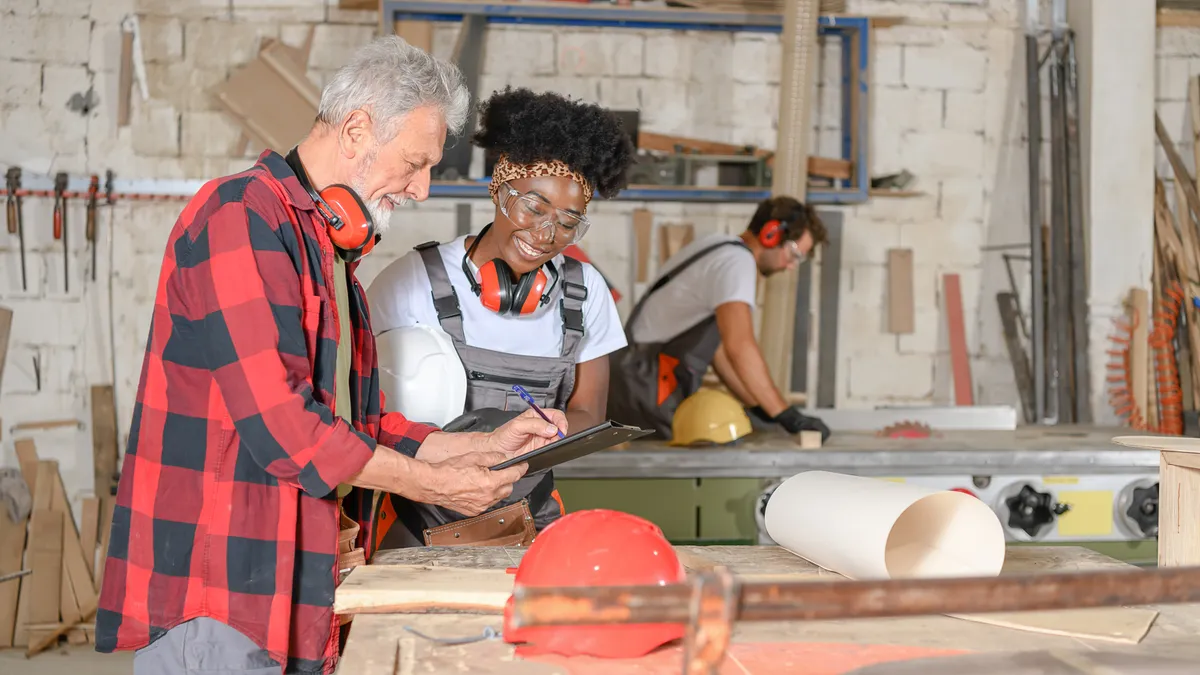When Shirley Lutz first began working in construction 25 years ago, she said she and her coworkers did almost all project planning, bidding and estimating on paper.
With the arrival of the internet, tablets and apps, however, Lutz, a Texas-based senior project manager for Suffolk Construction, and other “old timers” found themselves left in the dark and wary of the transition from paper and pencil.
To address that disconnect, the Boston-based general contractor has adopted a reverse mentoring program, where new workers coach veterans.
The concept isn’t new: Human resource pros say the practice provides experienced workers with informal training in technology, helps stave off brain drain when workers leave and can improve and modernize culture, diversity and inclusion.
More than just technology
The programs can also reduce intergenerational prejudice, wrote Maggie Wooll in an essay for the BetterUp blog.
“Older colleagues might view millennials as spoiled and entitled. And younger team members may think baby boomers are resistant to change,” wrote Wooll, a former research lead at Deloitte. “With Gen Z entering the workforce, additional generational stereotypes are likely to form.”
In one example, Lutz pointed out that younger workers’ attitudes toward the hours of the workday differ from that of her and many of her colleagues.
"There have been times when I will see the older superintendent, senior superintendents or whatever on the site — they're like me, we get here 5:30, 6:00 in the morning,” Lutz said. “And they're like, ‘Oh, those young kids, they won't be rolling in here until about 8:30 or 9:00.’ And I'm like, ‘But they still get their work done, even if they don't come in at 6:00.’”
Nancy Novak, chief innovation officer for Compass Datacenters, used the term “bi-directional mentorship” to describe the phenomenon. Novak, formerly the senior vice president of construction for Compass, said she has mentors outside of her field to gain a different outlook.
“I have a mentor who’s younger than me. She opens my eyes to new perspectives,” Novak told Construction Dive. “For example, I’m extremely passionate about bringing diversity to the field of construction. The industry is facing a great shift change with very few people in the queue to fill the shoes of retirees. My mentor has heard me talk about it and helped me refine that narrative so that it lands better with the intended audience.”
Lutz said that newer workers benefit from intangibles that more experienced leaders on the jobsite or in the office provide.
“At the same time as [younger workers share knowledge], they also learn so much from us and the older gentlemen that they would never learn in a classroom or in a book or anything like that,” Lutz said.














